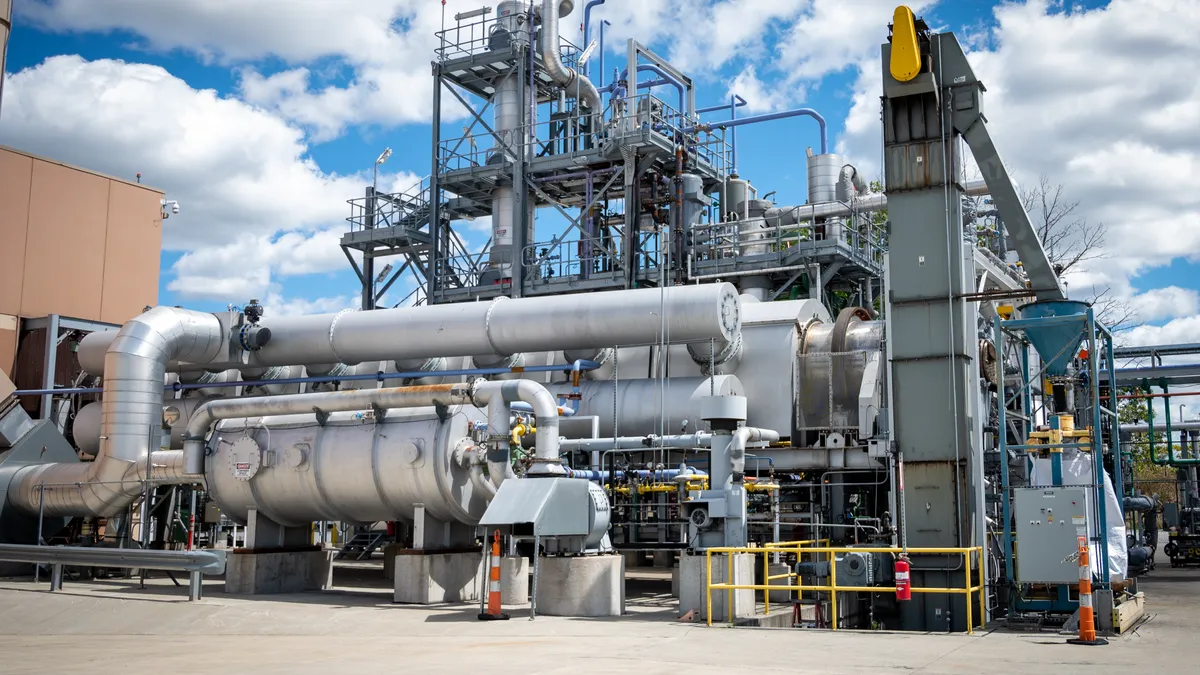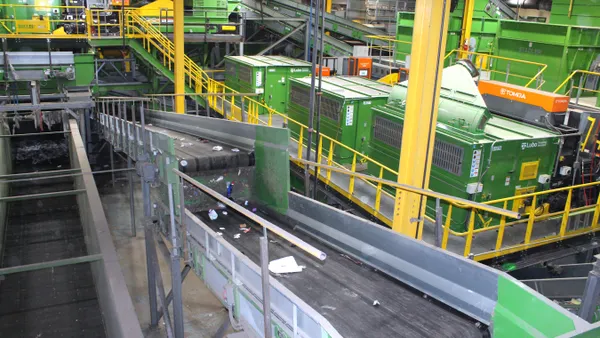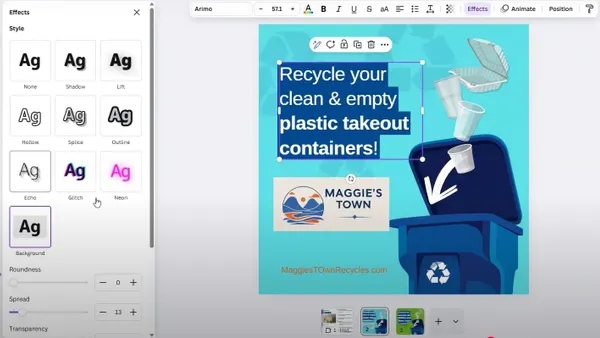Dive Brief:
- Ongoing plans to develop chemical recycling facilities in Ohio, West Virginia and Pennsylvania will not provide the environmental or economic benefits companies have promised, according to a new report from think tank The Ohio River Valley Institute.
- The ORVI report is critical of numerous chemical recycling projects in various stages of development in the region, saying the plans come with big promises that haven’t materialized. State and local governments must better protect residents who live near proposed project sites and pursue alternative options for reducing plastic pollution, the group says.
- During a webinar on Wednesday, the report’s authors, along with regional environmental groups, also highlighted recent grassroots efforts to block such projects from moving forward. That includes chemical recycler Encina’s recent announcement it would no longer pursue building its $1.1 million facility in Point Township, Pennsylvania, near the Susquehanna River.
Dive Insight:
The Ohio River Valley region has seen notable interest from chemical recycling companies in recent years, leading to a range of projects in various stages of finding funding, securing permitting and beginning construction.
That has also prompted community groups to organize opposition to such projects, saying many of the plans would cause pollution or add to environmental strain already felt by low-income neighborhoods where such projects are slated to be built.
Ohio, Pennsylvania and West Virginia all passed laws in the last few years that reclassify chemical recycling as a manufacturing process instead of waste management, a move companies such as Encina have said played a role in them choosing the region for their facilities. Plastics industry groups such as the American Chemistry Council have taken the lead in crafting and supporting such legislation.
Of the nine projects mentioned in the report, six are under development, including planned facilities from Sobe Thermal Energy Systems, Freepoint Eco-Systems and PTTGC America. Two other companies, PureCycle and Alterra, were previously opened in some capacity in Ohio.
Activity in the Ohio River Valley is part of a larger trend throughout the U.S. Major companies have spent billions of dollars in recent years in an effort to scale up chemical recycling plants around the country. These companies see the technology, also known as advanced recycling, as a way to process large amounts of hard-to-recycle plastics into new feedstocks instead of the material going to landfills.
But the ORVI report takes aim at those claims, saying chemical recycling is a “financially risky” proposition that uses technologies that haven’t been proven on a large scale. These technologies also rely on “yet-to-emerge supply chains and infrastructure and challenging market dynamics,” the report says.
Kathy Hipple, a research fellow for ORVI and an author of the report, said most of the 10 chemical recycling facilities operating in the U.S. are still in a pilot or demonstration stage, while many more have been in development for years without taking meaningful steps forward.
“There are many promises when these facilities are announced that they will be able to ‘recycle’ huge amounts. And then years later, they are still planning. Many of them have been canceled,” she said during the webinar.
The report notes that Alterra is still operating as a “demonstration plant” since being commissioned in 2020, while PureCycle has missed several production and timeline goals.
PureCycle recently announced a temporary “operational pause” in April to make facility improvements, then resumed operations in May. PureCycle also recently settled a $12 million lawsuit in May related to a significant power outage in August 2023, which investors said was kept quiet until months later in order to misrepresent PureCycle’s productivity during that time.
In July, it announced it had completed a successful test run to produce resin for MiniFibers and Beverly Knits to produce textiles using recycled plastic fiber.
The report also credits local opposition from residents as a factor in Encina’s announcement in April that it canceled plans for its pyrolysis facility. In a statement on Encina’s Point Township website, which has since been archived, the company said it would instead focus on projects elsewhere in the United States, as well as in Southeast Asia and Saudi Arabia.
Sandy Field, a member of Save Our Susquehanna, said Encina promised about 300 “good-paying jobs” and highlighted its commitment to following environmental regulations. Yet the company wasn’t forthcoming about specific ways it planned to prevent pollution along the floodplain or along the roadway where it planned most of its truck traffic, she said.
“It was important for us to be able to counter the greenwashing about advanced recycling, which everyone wanted to be true,” she said.
Grassroots community interventions also played a role in temporarily blocking Sobe Thermal Energy Systems from moving forward with building a facility in Youngstown, Ohio. The operator plans to use pyrolysis to process scrap tires into fuel meant to power steam boilers at various buildings in town. In January, the city adopted a one-year moratorium on pyrolysis, gasification or combustion operations.











